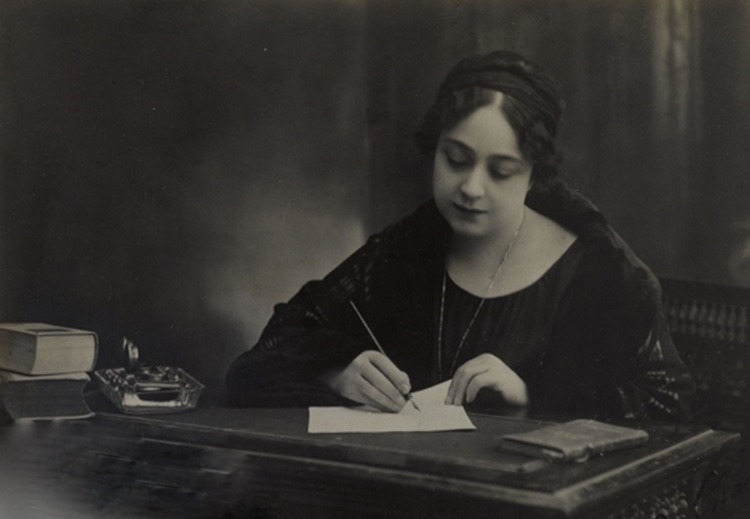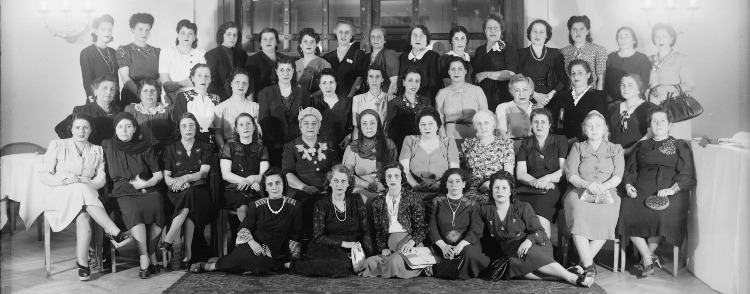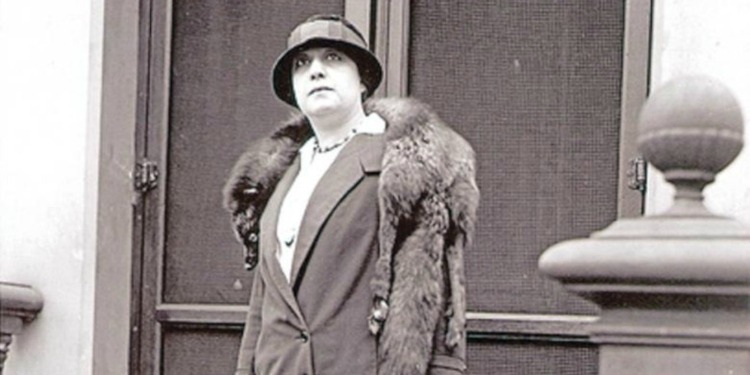Today, we are placing a spotlight on the most iconic figures in Egypt’s expansive history, the legendary leader, pioneer and activist of women’s rights, Huda Sha’arawi. Since that time and to this day, she was able to pave a better future for generations that came after her when it came to education and freedom from British occupation.
An Education For All
Born into the world back in 1879, Sha’arawi came from an affluent family which afforded her the privilege of an education, a privilege that at that time came only from status.

That same education was not afforded to many women at that time where they mainly lived a secluded life under the auspices of the harem system, one that disallowed men and women from mingling together whether in private or public spaces. Sha’arawi herself was also secluded in her home but was lucky enough to receive private tutelage, learning everything from Arabic, French and Islam to poetry, music, calligraphy, and painting.
Spurred and fueled by frustration towards knowing that other women didn’t have access to that same wealth of knowledge, Sha’arawi took it upon herself to change the narrative. Taking matters into her own hands, she began to organize lectures that women could attend and made a bigger step in 1910 when she opened up an all-girls school, one that taught them academic subjects rather than practical skills like midwifery and homemaking. That moment only scratched the surface at what Sha’arawi came to do later for women of all generations.
A Dynamic Political Voice in the 1919 Protest
Beyond education, Sha’arawi was drawn towards politics and had a vested interest in promoting freedom and independence all across Egypt. Her husband, Ali Sha’arawi was already an active political figure which helped Sha’arawi join in on the country’s fight for Independence from British rule in 1919.

Taking initiative as she always does, Sha’arawi led her very own women-only protest that didn’t just include women from the elite community but also women from the working class. With her fist in the air, she brought together all these women to fight not just against the British occupation but also for the release of imprisoned male nationalists. The power of uniting all these women together inspired Sha’arawi to magnify their voice and their influence on the entire nation by creating the first ever Feminist Union.
The All-Women Union
The movement was made official in 1923 and was created with the goal of making dynamic changes to the Egyptian constitution as well as family law. With ambitious goals of reforming education, healthcare, personal status as well as voting laws, the union took an all hands approach at making actionable results in the country. Beyond that, they sought a way to end polygamy and alter divorce laws and while they weren’t able to change everything, they still had some major victories.

Not only were they able to make primary education compulsory for both girls and boys, they also were able to make women attend university by the end of the 1920s.
The Unexpected Unveiling

A major turning point in Sha’arawi’s life came when her husband passed away in 1922. Even though they were barely in each other’s lives for many years which afforded her the freedom to pursue her education and political pursuits, his death symbolized a more unobstructed, relentless form of freedom that allowed her to take an even more out-of-the-box approach when it came to her pursuits.
In that very year, while attending a meeting of the International Women’s Suffrage Alliance in Rome, Sha’arawi along with a few other delegates removed their face veil as a way to make it easier to communicate. The moment in itself was significant but it became monumental when it was repeated on Egyptian soil. On arriving to Egypt, while stepping off the train, Sha’arawi shocked millions when she slowly lifted the veil off her face. It turned into a ripple effect as other women followed in tow, removing their veils which signified a shift in the narrative when it comes to women’s liberation.
A Vocal Fighter For The Arab World
Beyond Egypt, Sha’arawi sought to fight for the freedom and independence of other Arab countries, the biggest being Palestine. After visiting the country, she was adamant at convincing Arab countries to stand together and support the Palestinian uprisings against the British colonial rule and for the right of the country to earn its independence. This sort of support showcased how Sha’arawi yet again displayed her vocal opposition against British imperialism, which is why she received backlash from London officials after being granted the high Egyptian order by King Faruk in 1942.
This was followed by her receiving the Order of Virtues in Egypt in 1945; a female Egyptian order of knighthood that awards women for their efforts towards bettering the nation.
Now, just over a hundred years later, women across the nation as well as the region continue to remember Sha’arawi’s name as her words and achievements ring true to this day. She has left behind a legacy that will never be forgotten and today, we still get to see traces of what she accomplished as more women follow her path, taking on bigger and better roles.



